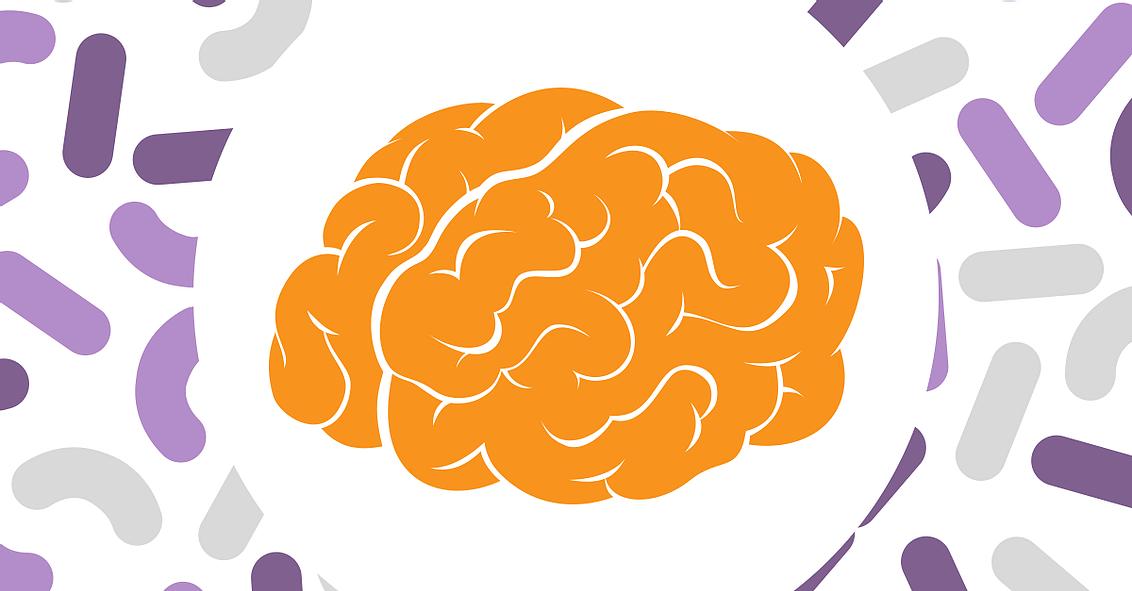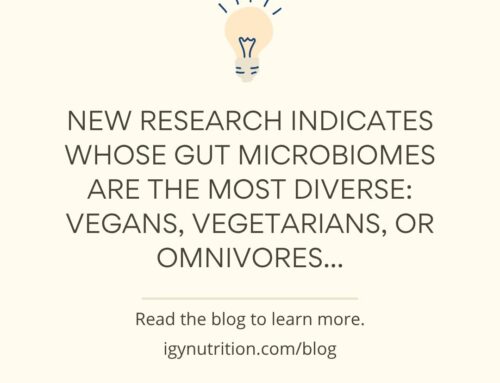Have you ever felt butterflies in your stomach when you are anxious?
Or got stomach cramps from stress?
Recent research has discovered that your digestive system and nervous system are intertwined. This connection is called the brain-gut axis, and it works both ways. What happens in your gut affects your brain, and vice-versa.
The bacteria present in the gut influences how the brain develops, especially in the regions that influence the stress response and conditions related to stress, such as anxiety and depression.
Scientists have linked imbalances in this community of microbes to a range of psychiatric conditions, including depression, anxiety disorders, autism, schizophrenia, obsessive-compulsive disorder, social anxiety, and more.
This overgrowth of “bad” bacteria over the good ones results in inflammation, which is a key factor associated with many diseases.
The quality, quantity, and composition of the bacteria in your gut all have an influence on your brain.
For example, studies have found that autistic children have a distinctly different microbiome compared to healthy children, they tend to have fewer beneficial bacteria in their gut such as Bifidobacterium.
Moreover, our gut is full of nerves and neurotransmitters that form a neural network called the Enteric Nervous System (ENS).
The ENS is directly connected to the brain, which is why stress and anxiety can exert such a powerful effect on our digestion.
Bacteria in the gut might also send chemical messages to your brain because some strains of gut bacteria can secrete neurotransmitters, chemicals like dopamine and serotonin, that actually serve to regulate our mood.
If your gut is populated with the wrong bugs, they won’t be able to make the same feel-good chemicals, which can have a major impact on your mood.
That is why taking probiotics, the beneficial type of bacteria, can improve your mood, as they rebalance the microbiome, and in turn the beneficial bacteria added can manufacture these feel-good neurotransmitters.
Research found that people who ate more probiotic-rich fermented foods were less likely to experience social anxiety.
Food once again is a big factor in this good/bad bacteria balance: a high-fat, high-sugar diet (think junk food) will feed the bad bacteria in the gut, which will lead to inflammation.
Research at Oregon State University found that this type of diet drives a shift in gut bacteria which is linked to a loss of cognitive flexibility (the ability to adapt to changing situations) and short- and long-term memory.
On the contrary, foods high in fiber will help preventing inflammation. Research has shown that gut microbes specializing in fermenting soluble fiber prevent inflammatory disorders.
To read more about what foods are good for your gut, take a look at this blog post, on the 6 best foods for gut health.
And to learn more about what to do to improve your gut health, read this article.
References:
http://www.rodalewellness.com/health/how-your-gut-controls-your-brain
http://www.huffingtonpost.com/entry/gut-bacteria-depression-study_us_5718d7a2e4b024dae4f121b4
http://fivethirtyeight.com/features/gut-week-gut-brain-axis-can-fixing-my-stomach-fix-me/
http://articles.mercola.com/sites/articles/archive/2015/11/12/mental-health-gut-flora.aspx
#brain #gut #axis #bacteria #guthealth #gutflora #stress #anxiety #depression #diet




